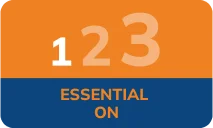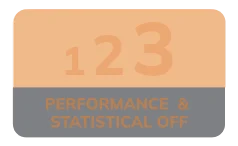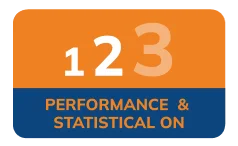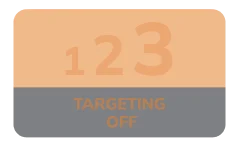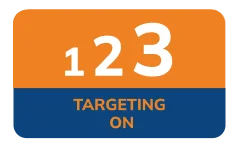Frauds through social networks
Social media sites are popular among the youth today and also among fraudsters. It has been observed that victims get a Facebook, Twitter or Whatsapp invite to install different types of festive themes, games, apps or links on their mobile or internet.
Once you click the link or download the App or software, a malicious browser extension gets downloaded on your computer, which monitors the users’ activities and leaks personal details to the fraudster. Sometimes, the users are also redirected to the survey page and are asked to fill vital information like name, date of birth, mobile number, passport number, national insurance number, debit/credit card numbers, etc.
Remember NEVER SHARE your Card number, CVV, PIN, OTP (One Time Password), Internet Banking User ID, Internet Banking Password, Debit Card Grid values or URN (Unique Registration Number) with anyone, even if the caller claims to be a bank employee. Sharing these details can lead to unauthorised access to your account.
Mentioned below are some safety tips which can be used to prevent frauds
- Do not place your personal information on your Facebook profile. Items such as your residential address, your phone number, your cell phone number, your date of birth will all become very public information instantly.
- Be careful when placing photographs of you or your children on Facebook. Please ensure that you have all your privacy settings set to maximum.
- Do not ever think that your Facebook page is private amongst only your friends and family. Job interviewers, lawyers, investigators, the police and the entire world will be searching for information on your Facebook site at some point.
- Do not accept all Friend Requests. Not every Friend Request is legitimate. If you do not know the person, then do not add them to your accepted friends.
- Do not leave your computer on with your Facebook account open. Leaving access to your Facebook account is equivalent to leaving your wallet or cell phone in public on the picnic table.
- Be sure to have anti-virus software for your computer and keep it updated. There are several viruses out there that attack your e-mail address library. The viruses then send out posts to everyone in your library asking them to become your friend in Facebook, while giving them the same virus.
- Be careful not to provide too much information. Do not update every detail of yours, your friends or family members' life. Respect their privacy.
- If someone is being intrusive or abusive, remember you can always report and block them.
- Don't display your year of birth. It slightly helps improve security settings and prevent identity theft.
- If your child(ren) is(are) on Facebook and is(are) under 13, monitor him/her(them) weekly to see what's happening and make sure your child(ren) has(have) all the safety equipment on.
- Use a strong password.
- Use login verification.
- Watch out for suspicious links, and always make sure you’re on Twitter.com before you enter your login information.
- Never give your username and password out to untrusted third parties, especially those promising to get you followers or make you money.
- Make sure your computer and operating system is up-to-date with the most recent patches, upgrades and anti-virus software.
- Never share your e-mail, personal or business address, telephone numbers, etc. on Twitter.
- Use strong passwords and keep changing your password every 4-6 weeks to ensure maximum safety. In addition to creating a secure Twitter account password, you should also do the same for your e-mail address associated with your Twitter account.
- Preview short URL’s Before Clicking as shortened URLs are often used to hide unsafe web addresses.
- Beware of Unsolicited Direct Messages that can lead to phishing as Direct Messages are often used to lure unsuspecting users to a login page, where they are asked to provide their username and password.
- If you receive spam, block and report the account as spam.
- Avoid being impersonated. Twitter permits impersonation only for parody. Even if you don’t use Twitter at all, someone else may be using your name to impersonate you on Twitter. This can lead to grave reputation problems for your business, professional and personal life.
- Use up to date anti-virus and firewall to protect your computer.
- If any unknown person claims that your near or dear ones are in trouble, always confirm by calling them directly on landline or on a different number.
- Delete data and restore factory settings on phone while selling or discarding the phone.
- Never send private information like bank account details, PINs or passwords through WhatsApp.
- Never accept files or begin downloads from messages sent to you by strangers or unknown numbers.
- Never respond to suspicious messages that come from unknown numbers.
- WhatsApp as a service will never contact you through a WhatsApp message. Never trust any message that claims to come from WhatsApp and demands some payment for the service.
- Some scams say they can connect your PC with WhatsApp and send messages from a desktop. Do not believe these, as this is not possible.
- Keep automatic downloads disabled, so that you can always keep a check on what is being downloaded.
- Avoid using WhatsApp when you are connected to open Wi-Fi networks. These are hunting grounds for malware authors and data sniffers.
- Always keep an updated antivirus security solution installed and updated on your mobile device.
- Phishers send out spam promoting bargains for flowers, romantic dinners, jewellery etc. Clicking on the offer might take the user to a malicious site that could compromise a vulnerable PC, or a legitimate looking site which asks for your credit card, and other personal information to "complete the order".
- Personalized greeting card are good but receiving them from an unknown person should be a tell-tale sign for a malicious attempt.
- Don't open emails, file attachments or click on links from unknown people / sources.
- The basic rule is that if it sounds too good to be true, it probably is.
- Protect your wallet and your identity by avoiding cyber scams.
- Change the passwords immediately
- In case you've provided your financial or personal information to someone who you later think is a scammer, immediately call us at 0344 412 4444 (in case you are in UK) or +44 203 478 5319 (in case you are outside the UK) and ask about cancelling fraudulent transactions and/or blocking future changes.
- You may also report your incident to Action Fraud at https://reporting.actionfraud.police.uk/login and other institutions with whom you have relationships.
For more information and guidance on cyber security, kindly visit website of the National Cyber Security Centre (NCSC) at www.ncsc.co.uk. The NCSC is an organisation of the United Kingdom Government that provides advice and support for the public and private sector in how to avoid computer security threats.
Scroll to Top





